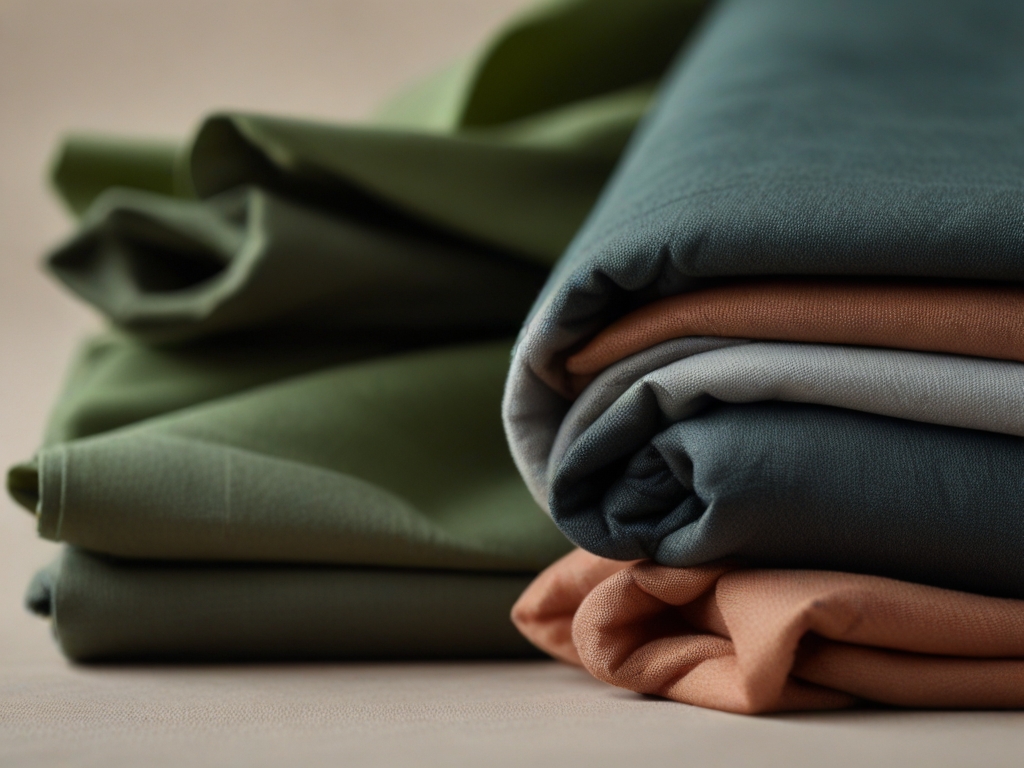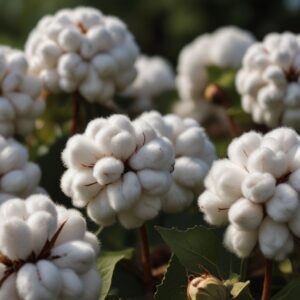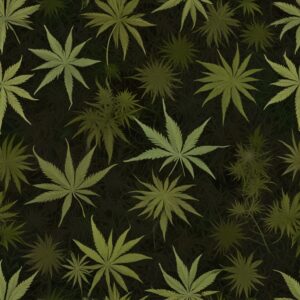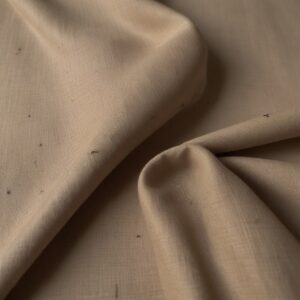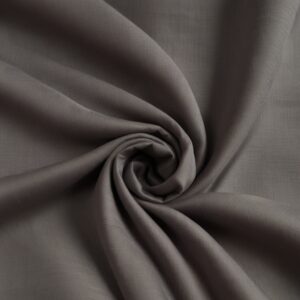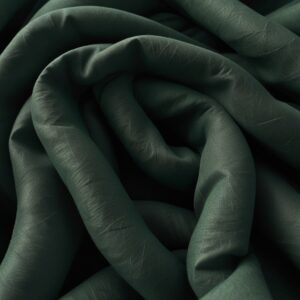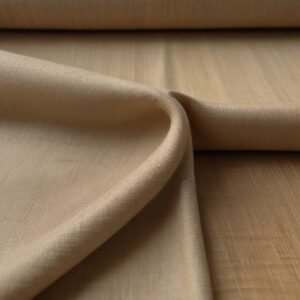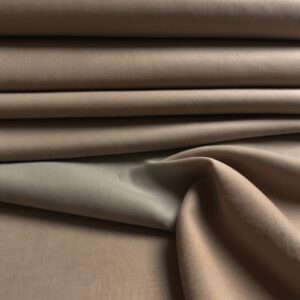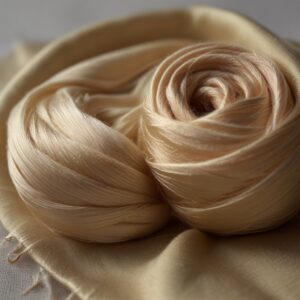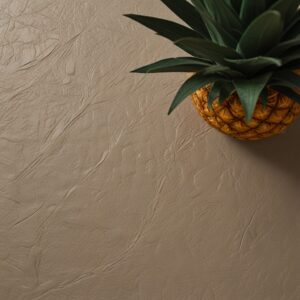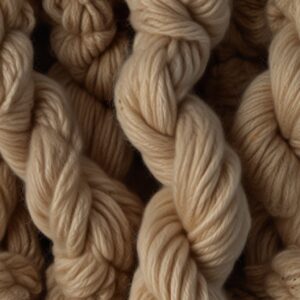Have you ever stopped to think about the environmental impact of your clothes? The fashion industry, while a significant trendsetter, can also be a major contributor to environmental concerns. Conventional cotton production, a mainstay in the textile world, is a major culprit. It requires vast amounts of water, relies heavily on pesticides, and can deplete soil quality.
But fear not, fashionistas with a conscience! There’s a growing movement towards eco-friendly clothing materials besides cotton. Sustainable fabrics offer a stylish and responsible way to express yourself without harming the planet. This guide explores 10 incredible alternatives to conventional cotton, helping you navigate the world of eco-conscious clothing.
What are sustainable fabrics?
Ever think about how your clothes might affect the environment? Our old friend cotton, while comfy for ages, can be a bit of a water hog. That’s where eco-friendly fabrics come in – they’re basically clothes that are nicer to Earth.
These fabrics come in a few flavors. Some are made from natural champs like linen and hemp. These guys grow fast and don’t need as much water, making them superstars for the planet. Plus, they’re super breathable and comfy, perfect for those hot summer days.
Eco-friendly doesn’t just mean plants though! Recycling is getting a major upgrade. Imagine those plastic bottles you toss turning into cozy jackets or workout clothes. Even trash from the ocean can be transformed into awesome fabrics for swimsuits and activewear!
Science is also getting in on the action. Fabrics like Tencel™ are made from wood pulp, but don’t worry, they’re still super soft and breathable. This shows how cool science can be, creating clothes that are good for you and good for the planet.
The bottom line? Eco-friendly fabrics let you look good and feel good, knowing you’re doing your part for a healthier world. So next time you’re shopping, consider these awesome options.
Sustainable fabrics for clothing: a greener wardrobe
The fashion industry is undergoing a much-needed transformation. Consumers are increasingly seeking clothing made with sustainable practices in mind. Sustainable fabrics are not just good for the environment; they often possess superior qualities like breathability, durability, and comfort. By making eco-friendly choices, you’re not just reducing your environmental footprint; you’re also investing in higher-quality clothing that will last longer.
Conventional cotton might be comfy, but sustainable fabrics are where comfort meets conscience. Embrace eco-fashion and watch your wardrobe blossom with style and responsibility.
Top 10 sustainable fabric alternatives
Now, let’s delve into the exciting world of sustainable fabrics! Here are ten fantastic alternatives to conventional cotton, each with its own unique set of benefits:
1.Organic cotton: Let’s not ditch cotton entirely! Organic cotton offers a significantly lower environmental impact. Grown without harmful chemicals and pesticides, it uses less water and promotes healthy soil. Organic cotton clothing is also gentle on sensitive skin, making it a great choice for everyone.
2. Organic hemp: Hemp is a superstar in the sustainable fabric world. This fast-growing plant thrives with minimal water and requires no pesticides. Hemp fabric is incredibly strong, naturally resistant to bacteria, and gets softer with every wash. Plus, hemp production helps improve soil quality!
3. Linen: Linen, derived from the flax plant, is a timeless choice for sustainable fashion. Linen is known for its exceptional durability and breathability, making it ideal for hot summer days. The natural fibers are also hypoallergenic, a perfect option for those with sensitive skin.
4. Tencel (Lyocell): Tencel, also known as Lyocell, is a revolutionary fabric made from wood pulp. The closed-loop production process recycles most of the solvents used, minimizing environmental impact. Tencel is incredibly soft, breathable, and drapes beautifully, making it a versatile choice for a variety of clothing styles.
5. Recycled polyester: Upcycling plastic bottles into clothing? Absolutely! Recycled polyester offers a fantastic way to reduce textile waste and lower energy consumption. This eco-friendly fabric can be surprisingly soft and comfortable, making it a great choice for activewear, outerwear, and everyday wear.
6. Bamboo: Bamboo is a rapidly renewable resource that requires minimal water and thrives without pesticides. Bamboo fabric boasts excellent breathability and a luxurious feel. However, it’s important to choose bamboo fabric produced using a closed-loop process to ensure true sustainability.
7. Modal: Made from beech trees, Modal is a type of rayon known for its exceptional softness and comfort. This eco-friendly fabric drapes beautifully and is perfect for creating flowy dresses, t-shirts, and loungewear.
8. Soy silk: Looking for a vegan alternative to traditional silk? Soy silk is derived from soybean protein and offers a luxurious look and feel. It’s naturally breathable, hypoallergenic, and drapes beautifully, making it a sustainable choice for elegant clothing.
9. Piñatex (Pineapple leather): Innovation meets sustainability with Piñatex! This innovative material uses pineapple leaf fibers to create a leather-like alternative. Piñatex is a durable and versatile material perfect for handbags, shoes, and other accessories.
10. Organic wool: Wool gets a bad rap sometimes, but opting for organic wool production makes a big difference. Organic wool sheep are raised without harmful chemicals, promoting animal welfare and soil health. Organic wool offers natural warmth, breathability, and fire resistance, making it a great choice for winter clothing.
Choosing sustainable fabrics for different needs
With so many fantastic options, choosing the right sustainable fabric for your needs can be fun! Here’s a quick guide to help you navigate:
- Breathable sustainable fabrics for summer: Beat the heat with breathable fabrics like linen and Tencel. Their natural fibers allow for excellent air circulation, keeping you cool and comfortable.
- Eco-friendly fabrics with good drape: For flowy dresses and elegant pieces, consider Tencel and modal. These fabrics drape beautifully and create a flattering silhouette.
- Comfortable and sustainable clothing materials: Looking for ultimate comfort? Organic cotton, modal, and Tencel are all incredibly soft and gentle on the skin. Perfect for everyday wear and loungewear!
- Best fabrics for sensitive skin – sustainable: Sensitive skin? Opt for organic cotton and Tencel. These hypoallergenic fabrics are free from harsh chemicals and irritants, making them ideal for those with delicate skin.
Sustainable Fashion Beyond Fabrics
While fabric choice is a crucial part of sustainable fashion, it’s not the whole story. Ethical production practices are equally important. Look for brands committed to fair labor practices, safe working conditions, and responsible manufacturing processes. Many sustainable clothing companies even transparently disclose their supply chains, allowing you to make informed choices.
Here are some tips for finding eco-friendly and ethical clothing brands:
- Look for certifications: Several certifications exist for sustainable clothing, such as GOTS (Global Organic Textile Standard) and Oeko-Tex Standard 100. These certifications ensure that the fabric and production meet strict environmental and social criteria.
- Research the brand: Do your research! Many sustainable brands proudly showcase their commitment to ethical practices on their websites. Read their mission statements and learn about their manufacturing processes.
- Shop local: Supporting local, sustainable clothing designers and boutiques is a fantastic way to minimize your carbon footprint associated with transportation. Plus, you get to discover unique and beautiful pieces!
Benefits of using sustainable fabrics
Here are the benefits of using sustainable fabrics in bullet points, presented in an engaging and informative way:
- Weaving a greener future: Sustainable fabrics are heroes for Mother Earth! They often require less water to produce compared to conventional options, like cotton. This translates to less strain on precious water resources and healthier ecosystems.
- Kiss chemicals goodbye: Many sustainable fabrics are produced with minimal or even zero harsh chemicals. This not only benefits the environment by reducing pollution, but it also creates safer working conditions for garment workers and leads to clothes that are gentler on your skin.
- Durability you can trust: Eco-friendly fabrics are built to last! Materials like organic hemp and linen are renowned for their strength and resilience, meaning your clothes will stay looking fabulous for longer. This reduces textile waste and saves you money in the long run.
- Breathable bliss: Feeling cool and comfortable is a must, and many sustainable fabrics excel in this department. Fabrics like Tencel and bamboo are naturally breathable, allowing your skin to breathe for ultimate comfort, especially on those hot summer days.
- Naturally luxurious: Eco-conscious doesn’t have to mean sacrificing style! Fabrics like organic wool and soy silk offer a luxurious feel without the environmental guilt. Now you can rock a sophisticated look while feeling good about your fashion choices.
- A feel-good fashion statement: Choosing sustainable fabrics allows you to express your unique style with a conscience. Knowing your clothes were made with the planet and people in mind adds a whole new level of satisfaction to your outfit.
Conclusion: embrace eco-conscious style
The world of sustainable fabrics offers a wealth of exciting possibilities to express your personal style while minimizing your environmental impact. From the classic comfort of organic cotton to the innovative luxury of Piñatex, there’s a sustainable fabric for everyone.
By making informed choices, you can be a part of the solution. Embrace eco-conscious fashion and start your sustainable clothing journey today! Look for brands committed to responsible practices, explore the wonderful world of sustainable fabrics, and discover a wardrobe that’s kind to both you and the planet.
Remember, a stylish outfit doesn’t have to come at the cost of the environment. With a little knowledge and exploration, you can create a sustainable and fashionable wardrobe that reflects your values.
Frequently asked questions (FAQs)
1. What are eco-friendly fabric alternatives to cotton that are comfortable and stylish?
Answer: Don’t worry, ditching cotton doesn’t mean sacrificing style! Here are some comfy and chic eco-friendly options:
- Tencel™: Made from wood pulp, it’s luxuriously soft and drapes beautifully. Think flowy dresses and soft tees.
- Linen: A natural fabric known for its breathability and coolness, perfect for summer outfits with a touch of rustic chic.
- Organic cotton: When cotton is a must, choose organic for a more sustainable option. You won’t miss the softness.
- Bamboo viscose: Soft, breathable, and with a lovely drape, it’s a versatile choice for dresses, tees, and PJs.
- Modal®️: Made from beech trees, it’s known for its silky feel and durability, perfect for comfy dresses or everyday tees.
2. Besides organic cotton, what are some natural fabrics that are less water-intensive?
Answer: Sure, ditching thirsty cotton is easy! Here are some natural fabrics that grow with way less water:
- Linen: This breezy summer favorite is drought-resistant by nature, making it a water-conscious choice.
- Hemp: This super-strong fiber grows fast and needs minimal water. Plus, it’s soft and breathable, perfect for comfy tees and shirts.
- Bamboo: This fast-growing grass needs less water than cotton and is known for its moisture-wicking properties, keeping you cool and dry.
3. Are there any sustainable fabrics that are strong and durable like cotton?
Answer: Sure, going green doesn’t mean sacrificing on tough clothes! You’ll be surprised by some super strong sustainable fabrics that rival cotton. Hemp, a natural fiber, is incredibly durable and gets softer with every wash, making it perfect for long-lasting jeans or jackets. Tencel™, made from wood pulp, is another great option. While soft and flowy, it’s surprisingly resilient, ideal for shirts, dresses, or pants that will last for years.
4. What are some innovative, recycled fabrics that can be a sustainable alternative to cotton?
Answer: Cotton’s got some innovative competition these days! Recycled materials are being transformed into super cool fabrics. For example, plastic bottles can be reborn as comfy fleece jackets or athletic wear. Even ocean plastic waste can be turned into high-performance fabrics for swimwear and activewear! So you can look good, feel good, and do good for the planet at the same time.
5. I love linen, but are there other breathable and cool fabrics like it that are more eco-friendly?
Answer: Linen is a summer favorite, but there are other eco-friendly options that share its breezy magic! Tencel™, made from wood pulp, is super breathable and drapes beautifully, perfect for flowy dresses and soft tees. Bamboo viscose is another great pick. Known for its moisture-wicking properties and soft feel, it’ll keep you cool and comfy all day long, and grows much faster than thirsty cotton. So you can stay cool and stylish without hurting the planet.

